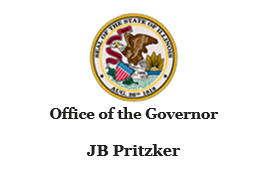Phase 1B Eligibility Will Expand to Individuals With Comorbidities and Underlying Conditions; Will Prioritize Those with Disabilities
QUINCY — In light of a steadily increasing federal vaccine supply, Illinois is making plans to expand Phase 1B eligibility on February 25 to people who have comorbidities and underlying conditions as defined by the CDC. In addition, Illinois will also prioritize individuals with disabilities.
Since taking office, the Biden administration has increased the vaccine supply by nearly 30 percent, including a 5 percent increase this week. Among the other major efforts to increase supply:
- The White House is launching a new Community Health Center vaccination program to direct additional vaccine to locations around the country that serve the hardest-hit populations, and that will ramp up over the coming weeks.
- The FDA is scheduled to meet to review the Johnson and Johnson COVID-19 vaccine candidate, a one-dose vaccine that does not require extreme cold storage and provided 100 percent protection against hospitalization and death in its clinical trial, for February 26, and the company has said it’s on track to deliver 100 million doses to the United States by the end of June.
“As quickly as we receive enough vaccine supply, we need to waste no time in protecting a broader section of our most vulnerable population,” said Governor JB Pritzker. “Those who are under 65 and live with comorbidities, such as cancer survivors or those living with heart disease, have an elevated risk of serious complications or death if they contract COVID-19. Illinois is moving forward in accordance with guidance from the CDC to expand our eligible population as supply allows, getting us closer to the point when the vaccine is widely available to all who want it. In the meantime, I encourage all Illinoisans to wear our masks and follow the mitigations so that more of our neighbors are healthy and alive when it’s their turn in the vaccination line.”
The Pritzker administration will begin working with local health departments and other providers across the state to include these additional higher-risk individuals into their community vaccination plans in the weeks ahead. Those health departments that have substantially completed their existing Phase 1B population prior to the February 25 statewide expansion date will be able to move forward earlier at the determination of local public health officials and IDPH.
This expansion applies to individuals 16 and older who aren’t otherwise covered in previous eligibility categories.
In accordance with the CDC guidelines, Illinois is using the below guiding framework for what qualifies as a high-risk medical condition once Phase 1B expands on February 25.
This list is subject to change as guidance evolves and does not reflect an order of priority:
- Cancer
- Chronic Kidney Disease
- COPD (Chronic Obstructive Pulmonary Disease)
- Diabetes
- Heart Condition
- Immunocompromised State from a Solid Organ Transplant
- Obesity
- Pregnancy
- Pulmonary Disease
- Sickle Cell Disease
To date, the State of Illinois has used more than 78 percent of its vaccine on hand (not including the federal government’s Long-Term Care Vaccination program and the separate supply of the City of Chicago). All three vaccination efforts have together delivered approximately 1.5 million shots, including 1.15 million first doses, to date.
Illinois’ current statewide seven-day rolling case positivity rate is 3.3 percent as of February 10 – the lowest rate since July 2020.

